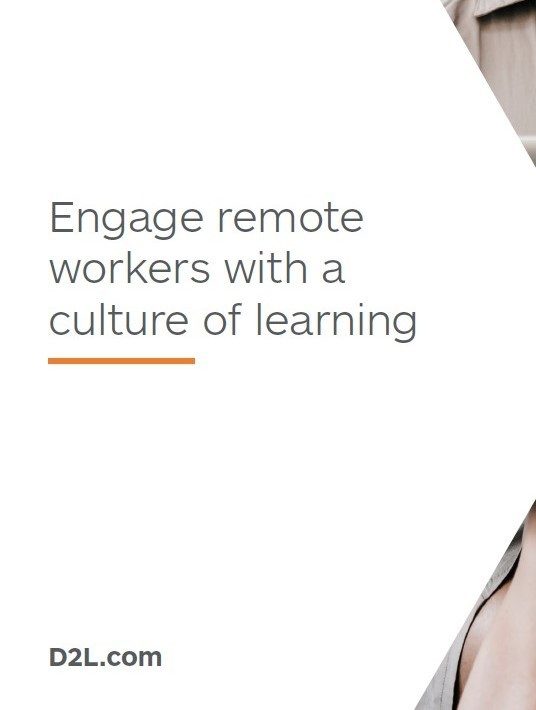This Is Not An Easy Road To Travel
Remote work challenges are now more common than ever. As more organizations turn to partial or fully remote workforces, three common roadblocks emerge: making room for informal and relationship-building communication, providing equal access to valuable learning opportunities, and defining and building an intentional company culture.

They’re familiar to companies around the world, from digitally native start-ups to transitioning digital brands, and can undermine even the most sophisticated efforts to build a culture of learning if they’re not handled effectively.
A Lack Of Informal Communication Opportunities
Technology removes much of the stigma associated with formal remote meetings, as video-enabled conference calls and webchats allow team members to collaborate with relative ease. But replicating fleeting, ad-hoc conversations can be more difficult. Unfortunately, failing to do this can eliminate critical opportunities for building relationships and sharing knowledge. “Most companies have no trouble re-creating their weekly formal meetings for a digital workforce,” said Kiara Graham, a learning strategy consultant at D2L. “But informal interaction—the kind of connection you can build when teammates can stop by a co-worker's cubicle for a quick chat—requires intention and planning to keep relationships strong.”
“One of the biggest challenges to face when expanding your team to include remote employees is thinking creatively about how to ensure those who are not in headquarters feel as connected and engaged in the company’s social engagement events. Always be asking the question, ‘How do we translate and offer this experience to those who are not physically here?’” Chantal Thorn, Director of Learning and Leadership Development, D2L
Unequal Access To Learning
The same limits on informal relationship-building apply to learning and development. Although 55% of employees consider career growth and opportunity more important than salary, 47% of remote workers aren’t satisfied with their employer’s learning and development opportunities.
“Just-in-time learning with peer-to-peer feedback shouldn’t be a privilege for employees who happen to work on-site,” Graham said. “If you want to take advantage of the productivity and retention gains that can come with a remote workforce, you need to offer them equal access to development opportunities.”
“You can’t build a culture of learning if learning is only supported and available for some of the company. It might not be possible to have all learning opportunities available equally to your dispersed workforce, but if you take it step by step, you can absolutely offer them equitably. And when you do that, not only are you truly supporting a culture of learning, you’re creating a culture of equity and engagement.” Chantal Thorn, Director of Learning and Leadership Development, D2L
The Scattered Development Of A Company Culture
Formalizing and building an intentional company culture can be challenging even when your team members rub shoulders with one another all day. When relationships are digital, it’s even more important that this isn’t allowed to happen by accident—because there’s a good risk it won’t happen at all.

“When all or part of your company is remote, you have to go out of your way to find ways to document and share your values,” Graham said. “It won’t just happen organically like it can when you’re in the same building day in and day out. How you learn and how you communicate must be very intentional if you want it to have an impact on your team.”
“Company culture isn’t a set of values plucked out of the air at a leadership retreat. It’s a product of people at all levels of your company what brought them to your company, what makes them stay. The process of identifying and sharing your company culture starts with your entire workforce, on and offsite.” Kiara Graham, Learning Strategy Consultant, D2L
Preparing For Remote Work Challenges The Best You Can
Download the eBook Engage Virtual Workers With A Culture Of Learning and learn how to prepare for the remote work challenges that await you.









